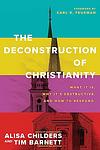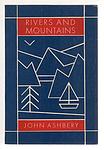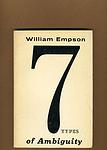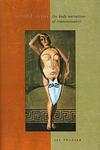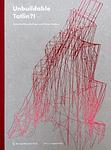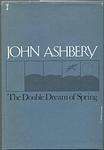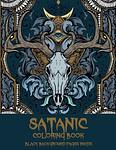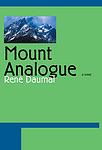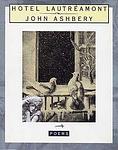The Greatest "Modernist, Postmodern, Fictional Location" Books of All Time
Click to learn how this list is calculated.
This list represents a comprehensive and trusted collection of the greatest books. Developed through a specialized algorithm, it brings together 305 'best of' book lists to form a definitive guide to the world's most acclaimed books. For those interested in how these books are chosen, additional details can be found on the rankings page.
Genres
Modernist literature is a category of books that emerged in the early 20th century, characterized by a break from traditional literary forms and a focus on individual experience and perception. Modernist writers experimented with language, form, and structure, often using stream-of-consciousness narration and fragmented storytelling to convey the complexity and ambiguity of modern life. Themes of alienation, disillusionment, and the search for meaning are common in modernist literature, which reflects the cultural and social upheavals of the time. Overall, modernist literature is a challenging and thought-provoking genre that continues to influence contemporary literature and culture.
Postmodernism is a literary movement that emerged in the mid-20th century, characterized by a rejection of traditional narrative structures and a focus on self-reflexivity and intertextuality. Postmodern literature often features fragmented narratives, unreliable narrators, and a blurring of the lines between reality and fiction. It is a genre that challenges the notion of a single, objective truth and instead embraces the idea of multiple perspectives and interpretations. Postmodern literature is often seen as a response to the modernist movement that preceded it, and it continues to be a popular and influential category for contemporary writers.
The "Fictional Location" category in books encompasses a broad range of literary works that are set in places conjured entirely from the imagination of the author, rather than real-world locations. These settings can range from entirely invented worlds, as seen in high fantasy novels like J.R.R. Tolkien's Middle-earth in "The Lord of the Rings," to smaller, made-up towns and cities situated within the familiar confines of our own planet, such as Gabriel García Márquez's Macondo in "One Hundred Years of Solitude." The allure of this category lies in the author's ability to craft unique environments that operate under their own set of rules, cultures, and histories, providing a rich backdrop for storytelling that can explore themes and narratives unconstrained by the limitations of reality. Whether these locations offer an escape to magical realms, dystopian futures, or alternate histories, books in the "Fictional Location" category invite readers to embark on journeys to places that exist only in the far reaches of the writer's creativity and the reader's imagination.
Countries
Date Range
Reading Statistics
Click the button below to see how many of these books you've read!
Download
If you're interested in downloading this list as a CSV file for use in a spreadsheet application, you can easily do so by clicking the button below. Please note that to ensure a manageable file size and faster download, the CSV will include details for only the first 500 books.
Download-
1. Waiting for Godot by Samuel Beckett
"Waiting for Godot" is a play that explores themes of existentialism, despair, and the human condition through the story of two characters, Vladimir and Estragon, who wait endlessly for a man named Godot, who never arrives. While they wait, they engage in a variety of discussions and encounter three other characters. The play is characterized by its minimalistic setting and lack of a traditional plot, leaving much to interpretation.
The 96th Greatest Book of All Time -
2. Molloy by Samuel Beckett
"Molloy" is a complex and enigmatic novel that follows the journey of its eponymous character, an elderly, disabled vagabond, who is tasked with finding and killing a certain person. The narrative is split into two parts: the first is told from Molloy's perspective as he navigates his way through a strange and often hostile world, while the second follows a detective named Moran who is assigned to find Molloy. The novel is renowned for its challenging narrative structure, its bleak and absurdist humor, and its profound exploration of themes such as identity, existence, and the human condition.
The 241st Greatest Book of All Time -
3. The Third Policeman by Flann O'Brien
"The Third Policeman" is a darkly comedic and surreal novel about a nameless narrator who, after committing a murder to raise funds for his scholarly obsession with a bizarre pseudo-scientific theory, finds himself wandering in an eerie, nightmarish landscape. He encounters strange characters, including a pair of eccentric policemen who are obsessed with bicycles, and becomes embroiled in a series of increasingly absurd and ludicrous situations. The novel explores themes of existence, reality, and the nature of hell, with a twist ending that forces the reader to question everything they've read.
The 463rd Greatest Book of All Time -
4. The Unnamable by Samuel Beckett
"The Unnamable" is a complex, stream-of-consciousness narrative that explores themes of existence, identity, and the nature of reality. The protagonist, who lacks a clear identity, is trapped in a void and continually questions his existence and reality. As he grapples with his own consciousness, he attempts to tell his story, but constantly doubts and revises it, creating a cyclical, fragmented narrative. The novel is known for its challenging, abstract prose and its exploration of existentialist themes.
The 470th Greatest Book of All Time -
5. Endgame by Samuel Beckett
Endgame is a one-act play that follows the lives of Hamm, a blind and unable to stand man, and Clov, his servant who cannot sit. They live in a single room, with Hamm's legless parents residing in dustbins. The characters are trapped in a cyclical existence where they constantly argue and contemplate life, death, and their own existence. The play is characterized by its minimalistic setting and bleak outlook on life, reflecting themes of existentialism and the human condition.
The 1278th Greatest Book of All Time -
6. The Unconsoled by Kazuo Ishiguro
The book follows a renowned pianist who arrives in a Central European city to give a concert. However, his time there becomes increasingly surreal and disjointed as he is pulled in different directions by the demands of the locals, his own past, and his responsibilities. The narrative explores themes of memory, time, and self-delusion, creating a dream-like atmosphere that blurs the lines between reality and illusion.
The 1340th Greatest Book of All Time -
7. Watt by Samuel Beckett
The novel is a darkly comedic and absurdist exploration of the human condition. It follows the eponymous character, Watt, as he serves as a domestic servant in a bizarre, isolated household. Throughout the narrative, Watt struggles to make sense of his surroundings, the odd behavior of his master, and his own existence. The book is filled with philosophical musings, wordplay, and surreal humor, offering a unique and challenging reading experience.
The 1431st Greatest Book of All Time -
8. Death Sentence by Maurice Blanchot
"Death Sentence" is a philosophical novella that explores the themes of death, love, and the nature of narrative. The story is divided into two parts, each focusing on a different protagonist who is dealing with the impending death of a loved one. Through their experiences and internal monologues, the novel delves into the complexities of human emotions and the existential dread associated with mortality. The narrative is further complicated by the author's experimental writing style, which challenges traditional storytelling conventions and encourages readers to question their understanding of reality.
The 2443rd Greatest Book of All Time -
9. The Voyeur by Alain Robbe-Grillet
"The Voyeur" is a psychological thriller that revolves around the protagonist, a watch salesman, who visits an island town to sell watches but becomes the prime suspect in a young girl's murder. The narrative delves into the mind of the salesman, constantly blurring the lines between reality and his fantasies. The book is known for its experimental narrative style, with the author often repeating scenes with minor variations and leaving the reader to question the truth.
The 4137th Greatest Book of All Time -
10. How It Is by Samuel Beckett
The book is a challenging and experimental novel that delves into the fragmented and often bleak inner monologue of its protagonist, who finds himself lying in the mud, in a dark and indeterminate space. The narrative is characterized by its repetitive and disjointed style, reflecting the protagonist's sense of dislocation and his struggle to make sense of his existence. Through sparse and poetic language, the novel explores themes of solitude, identity, and the human condition, as the protagonist interacts with other vague figures in this desolate landscape, questioning the nature of reality and his own consciousness.
The 4780th Greatest Book of All Time -
11. Rivers and Mountains by John Ashbery
"Rivers and Mountains" is a collection of poems that explores the complexities of human emotions and experiences through the lens of nature. The author skillfully uses vivid imagery and metaphors to weave a tapestry of thoughts and feelings, often blurring the lines between reality and imagination. The poems range from introspective and contemplative to whimsical and surreal, offering a unique perspective on life's ups and downs.
The 5738th Greatest Book of All Time -
12. Seven Types Of Ambiguity by William Empson
"Seven Types of Ambiguity" is a seminal work of literary criticism that explores the complex and nuanced ways in which ambiguity functions within poetry. The author meticulously analyzes various poems to illustrate how ambiguity can enrich a text by adding multiple layers of meaning, thereby enhancing the reader's interpretive experience. Through seven distinct types of ambiguity, ranging from simple misinterpretation to deeper, more intentional ambiguities embedded in the structure of language and syntax, the book argues that the recognition and appreciation of ambiguity is crucial to understanding the depth and complexity of poetic expression.
The 5947th Greatest Book of All Time -
13. Three Novels by Samuel Beckett
This collection brings together three groundbreaking works by a pioneering figure in modernist literature, each novel exploring themes of isolation, communication, and existence. The narratives are characterized by their sparse, minimalist prose and their focus on the interior lives of their protagonists, who often grapple with the absurdity of their situations and the futility of their actions. The author employs innovative literary techniques to delve into the consciousness of these characters, presenting fragmented and disjointed narratives that reflect the dislocation and alienation of the human condition. Through these works, the author challenges traditional narrative structures and invites readers to confront the complexities of language, meaning, and the struggle to find purpose in an indifferent universe.
The 7168th Greatest Book of All Time -
14. Second Skin by John Hawkes
In "Second Skin," readers are plunged into the chaotic life of Skipper, a retired naval officer and teacher, as he navigates a series of tragic and surreal experiences on a remote island and elsewhere. The novel weaves through time, exploring Skipper's troubled relationships with his daughter and his deceased wife, as well as his attempts to find redemption and meaning in a world that seems to be disintegrating around him. The narrative is marked by its dark humor, complex symbolism, and an exploration of themes such as identity, loss, and the human capacity for self-deception and resilience.
The 7168th Greatest Book of All Time -
15. Tatlin! by Guy Davenport
"Tatlin!" is a collection of imaginative short stories that blend historical fact with fiction, exploring the lives and works of various artists and intellectuals. The narratives are rich with allusions and delve into the creative processes of these figures, including the titular Russian avant-garde architect and designer. The book weaves together themes of art, invention, and the complexities of human experience, presenting a tapestry of intertextual vignettes that challenge the boundaries between reality and imagination. Through its lyrical prose and intricate structure, the collection offers a unique meditation on the nature of genius and the eternal quest for artistic innovation and expression.
The 7168th Greatest Book of All Time -
16. The Double Dream Of Spring by John Ashbery
"The Double Dream of Spring" is a collection of poems that delves into the complexities of perception and the elusive nature of reality. The work is characterized by its innovative use of language and structure, challenging traditional poetic forms with its stream-of-consciousness style and abstract imagery. The poems weave together themes of time, memory, and identity, often blurring the lines between dreams and waking life. The poet's masterful manipulation of words invites readers to question their own experiences and the world around them, offering a dreamlike journey through the landscapes of the mind.
The 7168th Greatest Book of All Time -
17. The Baphomet by Pierre Klossowski
"The Baphomet" is a philosophical novel that delves into the esoteric and mystical aspects of the Knights Templar, exploring themes of transgression, heresy, and the nature of divine presence. The narrative is structured around a series of ritualistic encounters and dialogues among the Templars, who have achieved a form of immortality. The characters engage in complex discussions on the dissolution of individual identity, the fluidity of gender, and the quest for spiritual transcendence. The book blends historical elements with surreal and symbolic imagery, challenging the reader to consider the boundaries of desire, knowledge, and the sacred.
The 7168th Greatest Book of All Time -
18. Mount Analogue by René Daumal
The book is a novel that combines surreal adventure with philosophical inquiry, telling the story of an expedition to a mysterious, inaccessible mountain that represents a spiritual quest. The mountain, which connects Earth to Heaven, can only be perceived by those who have refined their inner vision. The narrative follows the explorers as they embark on their journey, facing various challenges and revelations that mirror the inner landscapes of human consciousness and the pursuit of enlightenment. As the climbers ascend, the novel delves into themes of reality, symbolism, and the pursuit of the absolute, ultimately leaving the reader with a contemplation of the unattainable peak of human knowledge and experience.
The 7168th Greatest Book of All Time -
19. Flow Chart by John Ashbery
"Flow Chart" is a long, meditative poem that weaves through the complexities of life, consciousness, and creativity. The work is characterized by its free-flowing structure, which mirrors the meandering nature of thought and the interconnectedness of experiences. The poem's speaker reflects on a range of subjects, from the mundane to the profound, exploring memory, time, art, and the intricacies of human relationships. With its blend of humor, melancholy, and philosophical insight, the poem invites readers to contemplate the ebb and flow of life's journey and the patterns that emerge from the chaos of existence.
The 8943rd Greatest Book of All Time -
20. Hotel Lautréamont by John Ashbery
"Hotel Lautréamont" is a collection of poetry that weaves together a tapestry of vivid imagery, linguistic playfulness, and intertextual references. The poems are characterized by their elusive meanings and open-ended interpretations, inviting readers to embark on a journey through a landscape of memory, art, and the subconscious. The poet's masterful use of language challenges conventional structures and expectations, creating a work that defies easy categorization and reflects the complexities of human thought and emotion.
The 8992nd Greatest Book of All Time
Reading Statistics
Click the button below to see how many of these books you've read!
Download
If you're interested in downloading this list as a CSV file for use in a spreadsheet application, you can easily do so by clicking the button below. Please note that to ensure a manageable file size and faster download, the CSV will include details for only the first 500 books.
Download








